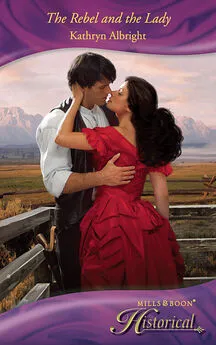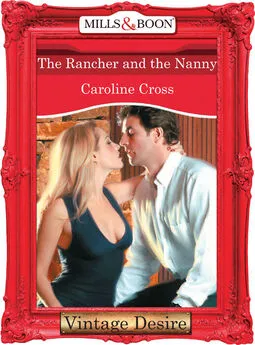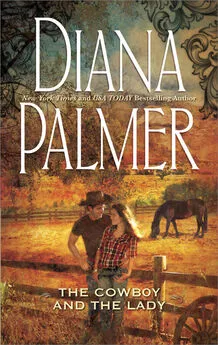John Creasey - The Toff and The Lady
- Название:The Toff and The Lady
- Автор:
- Жанр:
- Издательство:неизвестно
- Год:неизвестен
- ISBN:нет данных
- Рейтинг:
- Избранное:Добавить в избранное
-
Отзывы:
-
Ваша оценка:
John Creasey - The Toff and The Lady краткое содержание
The Toff and The Lady - читать онлайн бесплатно полную версию (весь текст целиком)
Интервал:
Закладка:
Barrington-Ley was twenty years older than his wife, a man of fifty-five who looked no more, than forty. He was of medium height, lean and wiry. He had been frequently consulted by the Government during financial crises. As far as Rollison knew his reputation was blameless. Like his wife he was a prominent worker for various charities.
Hilda was his second wife. He had a daughter of twenty-nine, named Gwendoline, a good-looking, earnest, serious-minded girl, often dubbed a blue stocking. Rollison remembered the deep, rollicking laugh which came from her occasionally, a laugh which was quite unexpected from someone usually so sober and who gave the impress on of lacking a sense of humour. There was, Rollison believed, a great affection between Gwendoline and Hilda. One other thing sprang to mind: the Barrington-Leys were often in the public-eye, but there was nothing about them on to which scandalous tongues could batten.
Rollison reached the house, which stood in its own grounds, a Georgian residence combining all that was best of the period and containing nothing of the worst. The wrought-iron gates were open, leading to a drive with a shubbery on either side, and in front of the main entrance stood a Silver Cloud Rolls-Royce. As Rollison reached it Barrington-Ley came hurrying from the house. Rollison could not remember a time when the banker was not in a hurry. The tails of his mackintosh were flying and on his handsome face there was a look of great intensity—that, again, was usual; he always gave the impression that he was carrying a great load of responsibility. His bright blue eyes reflected a sudden, unexpected beam of sunshine, which made him blink, but in spite of that he saw Rollison and pulled up short as the chauffeur opened the car door.
“Hallo, Rollison! I didn’t expect you.”
“Not unwelcome, I hope,” said Rollison.
“Great Scott, no! You’re just what Hilda’s been praying for —she’s convinced that the police aren’t trying to find out who our lost lady is. An aura of mystery surrounds her, and Hilda’s revelling in it. I’m warning you what to expect.”
“I can face it,” said Rollison.
Barrington-Ley put a hand on his arm and a foot on the Rolls, and said earnestly:
“As a matter of fact I feel troubled about the woman—she is what you’ve come about, isn’t she?”
“Yes. Mainly out of curiosity.”
“Good! If you can help her, I’ll be really delighted.” Barrington-Ley squeezed Rollison’s arm and got into the car, while Rollison walked up the four stone steps and went into the hall, where a footman was waiting with the door open. The footman did not recognize him, and Rollison gave him his card. When he looked at it, he seemed startled.
“Mr. Richard Rollison, sir?”
“Yes,” said Rollison.
“Only a few moments ago there was a telephone call for you, sir, and the caller gave me his number, in the hope that you would be able to ring him back. Would you care to do so before I see whether Madam is at home?”
“Yes, I think I will,” said Rollison. “What’s the number?”
“Mayfair 03121, sir.”
That was his own number. As he went to the telephone in a small room to the right of the hall. Rollison thought with a smile of Jolly’s resourcefulness, for he had not said that he was going to visit Barrington House.
He dialled the flat, and after a moment Jolly said:
“This is the residence of the Hon. Richard Rollison.”
“Hallo, Jolly,” said Rollison. “What’s the trouble?”
“There is no trouble, sir, as far as I know, but I am very glad that I’ve found you. Have you discussed the matter with Mrs. Barrington-Ley yet?” He sounded faintly apprehensive.
“No,” said Rollison.
“Then I wonder if it will be possible to avoid doing so for the time being, sir,” said Jolly. “ Miss Barrington-Ley is here.”
CHAPTER THREE
INTEREST IN THE TOFF
ROLLISON replaced the receiver thoughtfully, stood for a moment contemplating a water-colour by de Wint, and then went into the hall. The footman was waiting for him.
“Tell Mrs. Barrington-Ley that I called,” said Rollison, “and ask her whether it will be convenient for me to see her about half-past six this evening.”
“Very good, sir.”
The footman was tall and young and good-looking. He smiled at Rollison who reflected that the man’s surprise when he had read the card had been a little overdone. On reflection, too, the behaviour of Barrington-Ley might be thought unusual, even for that sprightly and high-pressured man. Had they been expecting him to call?
If they knew anything about the photograph sent to him, that was reasonable.
Rollison hailed a taxi, looked out of the small window at the back several times, and suddenly he leaned forward and spoke to the driver.
“Go down New Bond Street and turn into the far end of Gresham Terrace, will you?”
“Okay,” said the driver.
A small green car which Rollison thought had been following him continued along Piccadilly. Rollison smiled at his fancy, lit a cigarette, and was soon put down outside the tall, narrow, grey-faced house in which he had a first floor flat. As he paid the driver, he glanced towards the end of Gresham Terrace.
The small green car turned into the road.
“Okay, ta,” said the taxi driver.
“Are you in a hurry?” asked Rollison.
“Got to earn me living,” said the driver.
Rollison handed him a pound note.
“Wait here for me until I come out or until the little Morris moves off. It it moves before I arrive, follow it as far as the petrol in your tank will take you.”
The driver scratched his chin. He was a youthful-looking man, clean-shaven and unusually presentable.
“S’all right as far as it goes,” he said, “but I got three pounds worth of business in my tank.” He eyed Rollison curiously, and added: “And I can’t get more’n forty-five out of the cab, I might not be able to keep up wiv’ the car. Fair’s fair, ain’t it?”
“And you’re very fair,” said Rollison, giving him another two pounds. “If you find out where the Morris is garaged, come back and report and you can also live well to-morrow!”
“Don’t forget I ain’t making no promises,” warned the driver, “I’ll do me best.” He nodded and turned to his driving cabin, while Rollison strolled across the pavement and up the steps leading to the front door. The driver of the little car was sitting at the wheel reading a newspaper; he was nearly thirty yards away.
As Rollison put his key to the lock, the door opened and Jolly appeared.
“I’m very glad to see you, sir.” He stepped aside and then closed the door softly. Rollison stood watching him curiously. “Can we have a word together before you see Miss Barrington-Ley?” Taking assent for granted, he walked to the door of the small spare room. Rollison followed.
“We’re being very conspiratorial, aren’t we?”
“I think you will agree with the need for discretion, sir,” said Jolly, firmly closing the door. “Miss Barrington-Ley is in a state of some agitation, and although I have done my best to find out the cause for it, I have failed. However, I did manage to get some indication. I took the morning newspapers in to her, with The Record uppermost and folded so that she could not avoid seeing the photograph, and she showed some alarm.”
“Is alarm the word?”
“If you had been with me, I am sure you would have said so,” declared Jolly. “There was, also, some suggestion of distaste. I thought it wise that you should know before seeing her, sir.”
Yes,” said Rollison. “Thanks.”
“Excuse me,” said Jolly.
He went out ahead of Rollison, stepped to the front door and opened it, and then said in tones of delight:
“Good-morning sir!” He glanced at Rollison. “Miss Barrington-Ley has been waiting for some time.”
By that time Rollison had joined Jolly and the door of the living-room had opened.
Gwendoline Barrington-Ley stood in the doorway. She was taller than either her father or her mother, with an attractive figure not shown to advantage by a mannish tweed suit. Woollen stockings made her legs took sturdy. She wore a Tyrolean hat with a blue feather in the band, and on Gwendoline a Tyrolean hat looked slightly raffish.
“Hallo, Gwen!” said Rollison, stepping towards her with outstretched hand.
“Have you seen my mother to-day?” demanded Gwendoline.
“Why, no,” said Rollison.
“Thank heavens for that!” She took his hand and drew him into the room-. Her features were good, and with the right make-up she would have been attractive, but she scorned rouge and lip-stick. There was too much powder on the side of her nose, and it was nearly white—she needed a deeper shade to match her olive skin. Her grey eyes were very clear.
“Now what is all this?” demanded Rollison.
“Shut the door, please,” said Gwendoline, and would not go on until he had done so. Then she burst out: “It’s that dreadful woman!”
“There are so many,” murmured Rollison.
“You know what I mean. The woman who says she has lost her memory: Lost her memory!” Her voice was biting with contempt. “Rolly, I hate coming to you like this, I hate asking anyone to put themselves out, and if this were for my sake only I wouldn’t dream of it. But—well, there’s mother and father.”
“Oughtn’t we to start at the beginning?” asked Rollison. “And also be comfortable?” He led her to a chair and offered her cigarettes. She drew on one deeply, and when he was sitting in an easy chair opposite her, she began to talk in a low-pitched voice, quite determined that no one outside those four walls should hear.
“I don’t know when it really began. I do know that this woman is an impostor—lost memory indeed! she knows who she is as well as I know who I am. It’s a trick to outwit father, and she will do anything she can to make a fool of him, of that I’m quite sure. She’ll be absolutely ruthless, too, she won’t mind what trouble she causes between”
Gwendoline broke off, and bit her lip.
“This is in the strictest confidence,” murmured Rollison.
“Yes, I know, but—well, all right! Between Hilda and David.” She seemed to find it easier when she used the Christian names of her father and step-mother, and Rollison needed no more telling that she looked on them both as her natural parents. “I was there when she came in—I nearly had a fit! If you had seen David’s face you would know what I mean.”
“So he knows her,” said Rollison.
“Oh yes, although he pretends that he doesn’t. I often go to the London office, you see, and I was there when she came to see him, about ten days ago. Last night she looked like a ghost—on the previous occasion she looked like a Jezebel!”
“Strong sentiment,” murmured Rollison.
“Nothing can be too strong for her!”
“As I don’t know the lady, I can’t be judge,” said Rollison.
“You’ll have to take my word for it,” said Gwendoline. “I am quite sure that there is nothing that woman won’t do if she sets her mind to it. I can only tell you that she has seen my father before, and that when she left his office he looked like a ghost. I think she is blackmailing him, but I can’t be sure. I know that he has behaved most oddly since that time. Normally you can set your clock by him—oh, he’s always in a hurry but he’s never late for an appointment, and if he says he will be home by seven or any particular time, you can rely on his getting there to the minute. That is, you used to be able to. Since he saw the woman, he’s been unreliable, almost irresponsible. I feel sure that he has been meeting her.”
Читать дальшеИнтервал:
Закладка:










